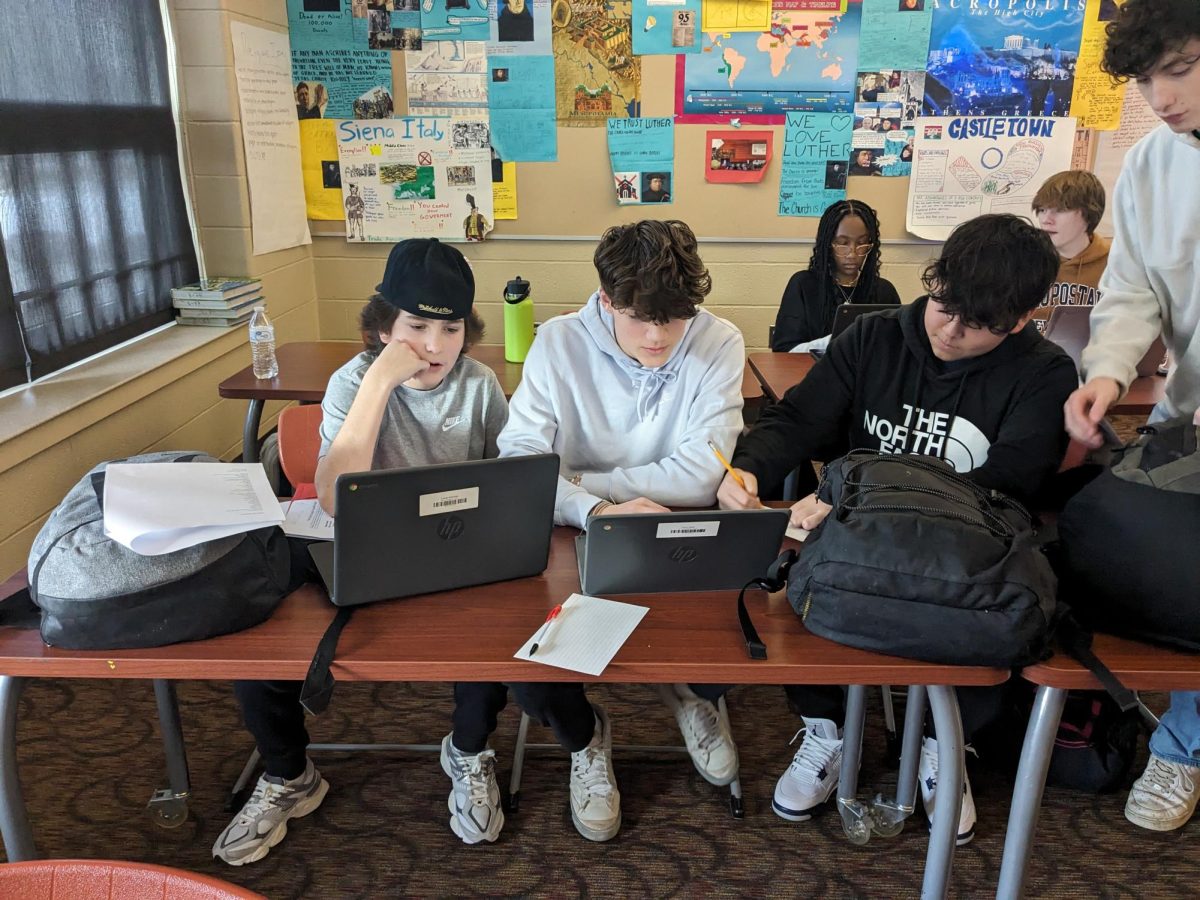Stress is defined as mental or emotional strain caused by demanding circumstances. It is normal to deal with stress, but it becomes a problem when it consumes a student’s whole life.
Exams are a demanding and stressful time for many students. Here at Waterford High School, midterm exams are 10 percent of a full year class grade and 20 percent for a half year class. These percentages can seem daunting to many students and may cause anxiety to spike.
Symptoms of anxiety can be both physical and mental. According to the CDC, some symptoms of stress include changes in appetite and interests, difficulty sleeping and/or having nightmares, difficulty concentrating and making decisions, bodily pains, and increased use of drugs and alcoholic substances.
The stress before taking the test can cause you to perform poorly. According to Margaux J. Barnes, PhD with Nemours Children’s Health, one of the country’s largest pediatric health systems, says the stress of taking a test can cause hormone adrenaline to be produced. Adrenaline can cause sweaty palms, a racing heart beat, and butterflies in your stomach. If someone worries too much, anxiety can spike and actually cause the person to do worse on the test than you normally would have.
You can do worse on your exam because the stress will cause you to have difficulty concentrating and difficulty sleeping. You will be too tired to concentrate and study.
Here are some tips for keeping test anxiety to a minimum:
- Start studying the day the teacher start reviewing the exam
- You will remember more information if you study over a longer period of time than if you cram. When you start cramming the information the night before, you are more susceptible to anxiety. If you have anxiety over the test, you are more likely not to sleep, which can also cause poor performance.
- Make a schedule
- Having a plan will benefit you because you will be organized. When you are organized, you are less likely to lose track of what you need to accomplish and you will study for everything needed for your exam. Ms. Guillemette, guidance counselor at Waterford High School, says that students should write information down and make an outline of the work they need to study. Students should make flashcards, online practice tests, and their own questions as well as making before or after school review sessions with teachers.
- Make a study group
- Asking and forming a study group with a peer will assure that both of you are learning and keeping one another on track with the study schedule.
- Practice breathing
- A breathing exercise from the NHS says that you need to make sure to relax and get comfortable before you start the following steps. Lay down on the floor and make sure that you are flat against the floor. Place your feet flat on the floor hip-width apart. Take deep breaths in through your nose and out through your mouth. Breathe in gently and regularly. Counting can also help calm yourself while you are breathing. Release your breath gently. Continue to do this for five minutes.
- Music to help anxiety
- Music has been clinically proven to reduce anxiety and stress. According to the National Library of Medicine, it does not matter whether or not you passively or actively listen to music. You could feel calmer just by listening to it for a short period of time.
- Taking time to calm your thoughts
- Take time to take a deep breath and tell yourself that you do not need to earn a perfect score on your tests. Remind yourself that everything does not need to be perfect and it is okay to get something wrong. Mistakes are meant to be made and they are meant to be learning tools for the future.
A study by the Pew Research Center found that anxiety and depression are the most major problems in teens today. Students need to remember that the grades they get now are not going to determine your whole life.
Based upon an article by Deborah Jepsen, child psychologist working for Melbourne Child Psychology, doing well in school just gives students a head start into their futures. For those who do not do well in school, it is a learning experience to see where their strengths and weaknesses fall.



